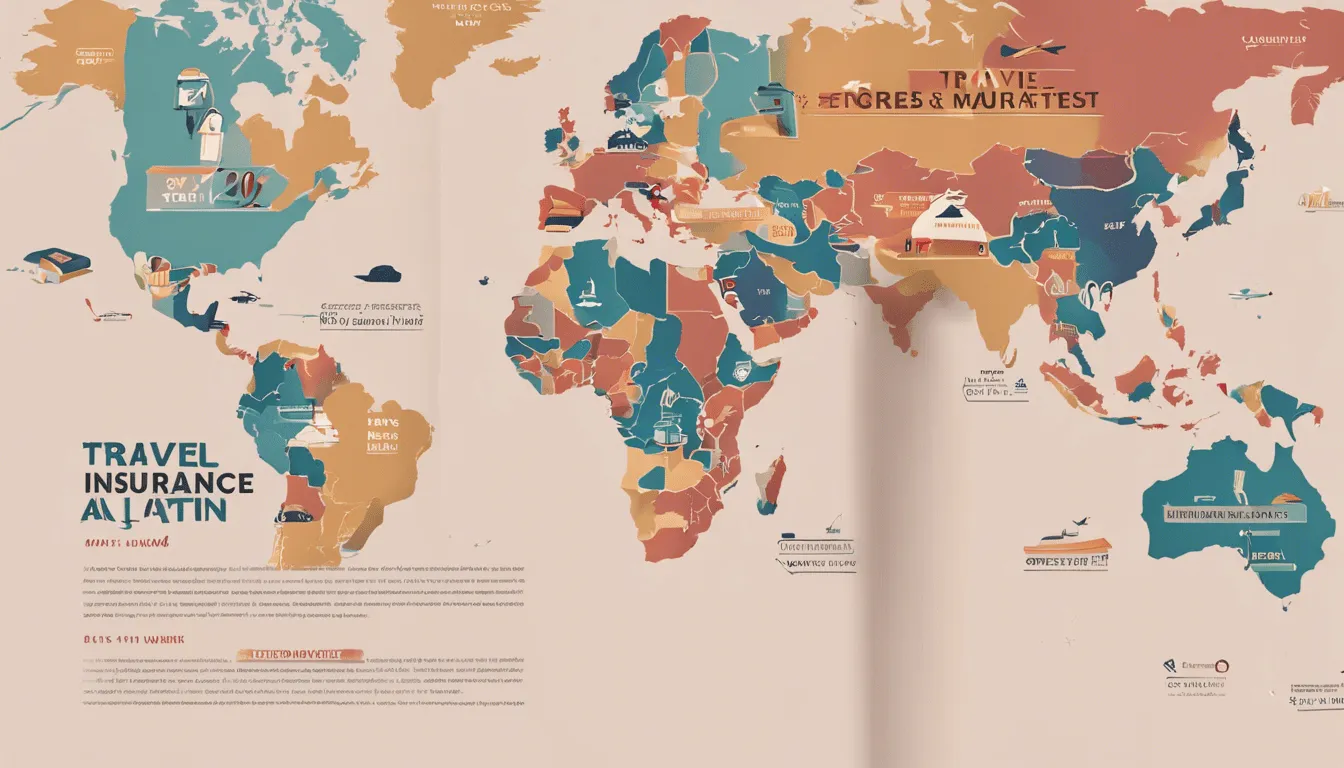A Complete Guide to Trip Cancellation Insurance: Protecting Your Travel Plans

Introduction:
In at present’s unpredictable world, journey disruptions are all too frequent. A sudden sickness, a household emergency or perhaps a pure catastrophe can derail your plans. That’s the place Trip Cancellation Insurance is available in. This information will dive deep into what this insurance covers, how to select the most effective plan and the way to make sure you’re absolutely protected, providing recent views on frequent and neglected advantages.
Key Sections:
1. What is Trip Cancellation Insurance?
- Definition: Coverage that reimburses pay as you go, non-refundable journey bills in case your journey is canceled due to particular unexpected occasions.
- Common Scenarios: Examples of lined causes embrace extreme climate, sickness, loss of life and work-related interruptions. But, every supplier has its personal set of standards, so it’s important to read the fine print.
2. What Does Trip Cancellation Insurance Cover?
- Non-refundable Costs: Flight tickets, lodge bookings and pre-paid excursions.
- Medical Emergencies: If you or a touring companion falls severely ailing earlier than the journey.
- Natural Disasters: Hurricanes, wildfires and different weather-related disruptions that make journey not possible.
- Civil Unrest: Unexpected political instability at your vacation spot.
3. Trip Cancellation vs. Trip Interruption Insurance: Understanding the Difference
- Trip Cancellation: Covers occasions that happen earlier than your departure.
- Trip interruption: Protect yourself after the trip has started by covering prices associated to ending the journey early or needing to change your journey plans halfway.
4. How to Choose the Right Plan for You
- Consider Your Needs: Are you traveling internationally or domestically? Is the journey for leisure or business? Are there any non-refundable pre-paid actions?
- Plan Costs: Look on the plan’s whole worth for the worth of your journey.
- Understanding Exclusions: Not each motive for cancellation is roofed. Fear of journey” due to disease outbreaks or journey advisories could not qualify except you go for a “Cancel for Any Reason” (CFAR) add-on.
5. Cancel for Any Reason (CFAR) Coverage: Is It Worth It?
- Flexibility: CFAR permits vacationers to cancel for non-standard reasons not covered by regular policies, providing up to 75% reimbursement.
- Cost Implications: CFAR can considerably elevate the premium price, nevertheless it’s helpful for these with unpredictable schedules or issues past the usual protection causes.
6. Common Misconceptions About Trip Cancellation Insurance
- “It Covers Everything”: Many individuals mistakenly consider journey cancellation insurance is all-encompassing. Certain issues usually are not lined, like prior medical situations, identified occurrences like a storm that’s predicted or voluntarily canceled journeys.
- “It’s Unnecessary for Short Trips”: Even brief journeys can face cancellations due to last-minute emergencies. A small policy can cover vital losses.
7. Expert Recommendations for Travelers
- Plan, Get Insured: Once you will have non-refundable journey plans, it is essential to buy insurance coverage.
- Read the Fine Print: Carefully evaluation policy wording for exclusions and situations.
- Consider Multi-Trip Insurance: Frequent vacationers would possibly profit from annual multi-trip insurance policies.
8. Practical Advice for Claiming Your Insurance
- Documentation: Always hold your receipts and any proof that verifies the reason for cancellation (e.g., medical reviews, climate forecasts).
- Timeliness: Submit claims promptly after the disruption happens. Delayed submissions could end result within the denial of protection.
Conclusion:
Trip cancellation insurance can prevent from dropping cash when the surprising occurs. But, understanding is essential to guaranteeing you’re not left out-of-pocket throughout unexpected disruptions. By selecting the right policy tailored to your trip’s needs, you’ll be able to journey with peace of thoughts.
Here are three exterior hyperlinks:
The U.S. Travel Insurance Association supplies detailed insights on totally different journey insurance coverage varieties and shopper suggestions. https://www.ustia.org
Consumer Financial Protection Bureau: gives steering on what to search for in journey insurance coverage and your rights as a shopper. https://www.consumerfinance.gov/
The World Health Organization: For up-to-date info on international health risks that may impact travel plans. https://www.who.int/
Building Insurance: Everything You Need to Know
Top 5 Small Business Insurance Quotes in 2025: Complete Guide to Protecting Your Business
Unlocking the Best 2025 Life Insurance Secrets: What You Must Know!



